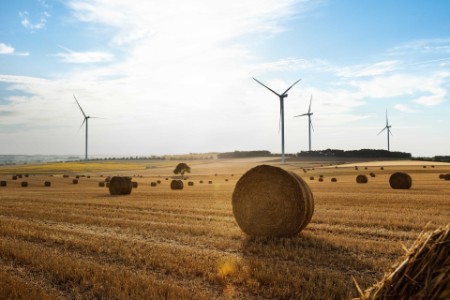The disclosure requirements cover the core elements of governance, strategy, risk management and metrics and targets, including, for example, whether, and how, the company uses climate-related scenario analysis to inform the identification of climate-related risks and/or opportunities.
Performing scenario analysis will help companies better understand the resilience of their strategy and business model to climate-related changes, developments or uncertainties. The results of that scenario analysis will, in turn, give companies deeper insight into how they can fine-tune their overall strategy and business model in order to enhance risk management procedures that are fit to tackle the climate change challenges. In practice, this will likely be an iterative process, the success of which requires appropriate oversight as well as collaboration across multiple different business functions.
Focus on the value chain to reduce greenhouse gas emissions
The reduction of greenhouse gas (GHG) emissions into the atmosphere, including those from carbon dioxide and other gases, is a critical component of climate change mitigation efforts. IFRS S2 specifically requires companies to disclose the absolute gross GHG emissions they generated during the reporting period. The GHG emissions are generally measured in accordance with the Greenhouse Gas Protocol: A Corporate Accounting and Reporting Standard (2004) (the GHG Protocol). However, in recognition of the scale of this undertaking for all companies required to comply, IFRS S2 does give some flexibility the use of the GHG Protocol when it comes to aligning the GHG measurement approach with it. For example, if a jurisdictional authority requires companies to use a different method to measure its GHG emissions, IFRS S2 will allow to use this alternative method. Moreover, during the first annual reporting period in which a company applies IFRS S2, it can continue using a measurement method other than the GHG Protocol to measure its greenhouse gas emissions, if it had used an alternative approach in the annual reporting period immediately preceding the date of initial application of the standard.
A closer look at the scope of the GHG disclosure requirements shows that they cover different types of emissions, including:
- Scope 1 direct greenhouse gas emissions that occur from sources that are owned or controlled by a company;
- Scope 2 indirect greenhouse gas emissions that occur from the generation of purchased electricity, heat or steam consumed by a company ; and
- Scope 3 indirect emissions outside Scope 2 GHG emissions that occur in the value chain of a company, including both upstream and downstream emissions.
Given that the complexity of the Scope 3 disclosure which captures GHG emissions along a company’s value chain which, historically, has presented a number of challenges for companies in terms of data quality and its collection, the standard provides a temporary transition relief. The relief permits companies not to disclose Scope 3 GHG emissions in the first year that they apply the standard. The ISSB acknowledges that companies may not always be able to effectively influence their Scope 3 emissions, especially in the short term.
Businesses will need to proactively engage with stakeholders across their entire value chain and work together to ensure that proper systems and controls are in place to support their disclosures. Moreover, to achieve any Scope 3 emission targets in the future, companies will likely already need to carefully evaluate what products they would like to offer in the long term and how they are designed, manufactured and delivered to customers along the value chain.
Conclusion
IFRS S2 is the first topic-based standard finalised by the ISSB. It lays the foundation of a global baseline on sustainability reporting related to climate change for those using financial reports. This standard will also help facilitate greater understanding within companies across all sectors when it comes to the impact of global warming and other climate issues, change their behavior collectively and transition to a net-zero economy sooner.
Related articles
Summary
The issue of IFRS S2 requires companies to act now to put comprehensive plans in place to disclose climate-related information on how they will transition to a low carbon economy. As part of this approach, the use of climate-related scenario analysis will help companies to test the resilience of their business model and strategy in the face of change and uncertainty. They also need to look at their entire value chains to get ready to comply with the Greenhouse Gas Protocol and set and measure their targets for reducing greenhouse gas emissions.


